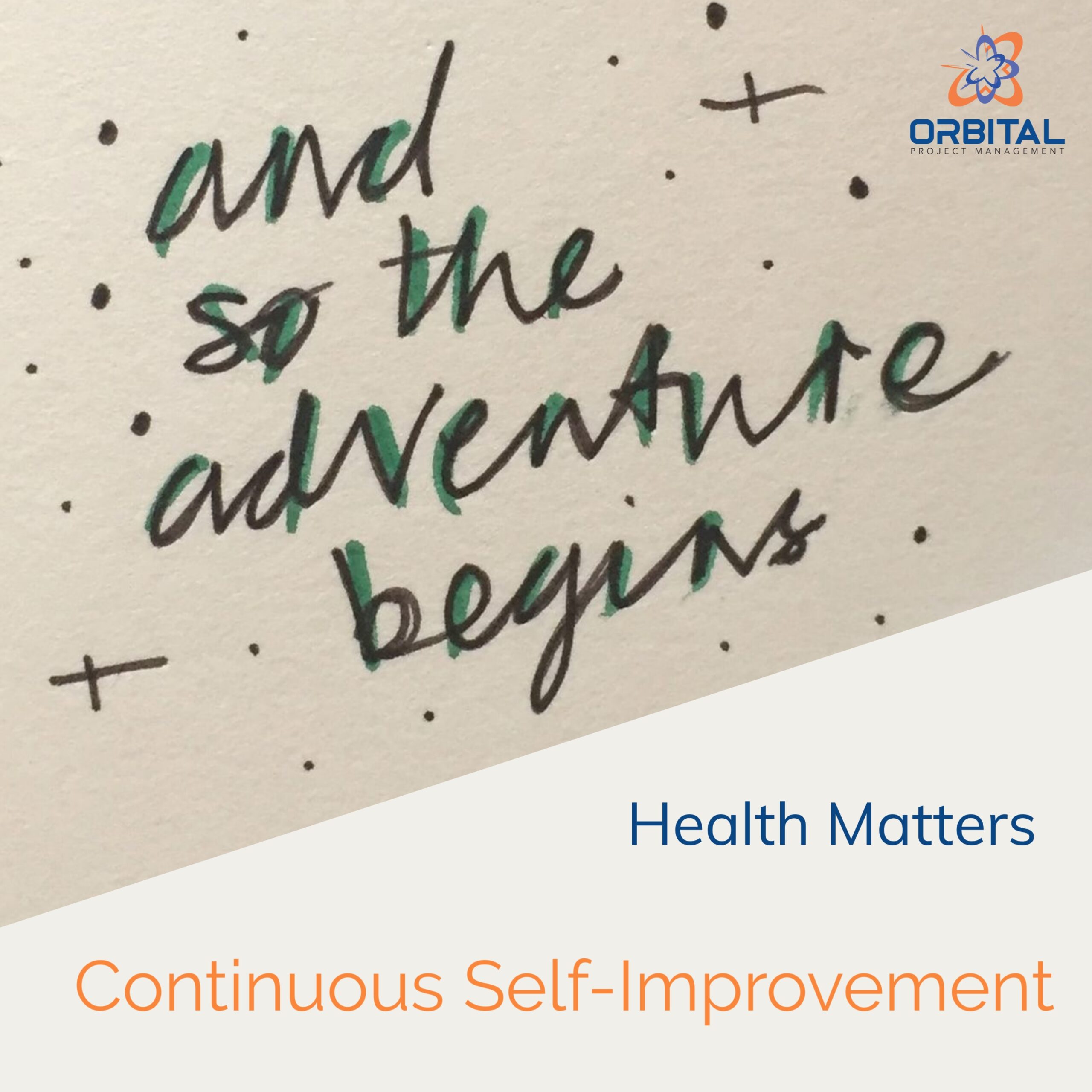In our second installment of Health Matters (check out our first two editions here), we tackle ways to approach self-improvement for lasting and meaningful results.
From looking at a holistic approach to health, reading books to ease yourself into new habits, or edging out of your comfort zone for inspiration, we’ve got you covered.
First, let’s determine your motivation style and hone your self-assessment skills to best identify areas ripe for improvement.
Motivation Style: Carrot or Stick
Do rewards get you fired up for making changes?
Or is it the fear of repercussions if you do not alter your ways of thinking or behaving?
For most of us, it’s a little bit of both. Often, there is some self-disappointment that sparks the initial thought that something needs improvement. Whether it’s an uncomfortable muffin top over your waistband, shame at lashing out unnecessarily at your loved ones, or frustration from being passed over (again) for that promotion, you may realize that what you’ve been doing isn’t serving you well. No matter the situation, dissatisfaction can be a powerful impetus for change.
While the initial realization may be motivated by a need for self-discipline or the promise of reward, the ensuing motivation can be tailored to whatever works best for you – It’s all in the mental framing. No more clothes until you hit your goal weight? Or will the reward outfit hang in plain view to remind you that, with each tiny piece of progress, you’re almost there? Determine which approach fuels your initiative with a hotter flame through some simple self-assessment.
Self-Assessment Exercise
Being able to objectively assess yourself, including your thoughts, words, and actions, is a powerful skill. It vastly improves your emotional intelligence (EQ). Learning to take ownership of how you operate in the world, including how you interact with others, expands your power of influence and your ability to manage through crisis.
Step 1: Quiet the ego. (This isn’t about being wrong or not good enough.)
Step 2: Perform an objective review of what isn’t working in your life. (A look at the Big 3 is an easy place to start: Health, Wealth, & Relationships)
Step 3: Mentally “try on” what some changes might lead to.
Step 4: Write them down. (Seriously, take pen to paper here. The effect exceeds the effort.)
Step 5: Review your written note daily and see what needs adjusting.
Accepting responsibility for everything you think and do is empowering. No longer can the words or actions of another “make” you do or feel something. Cultivate enough non-reactivity to make thoughtful responses to the challenges that arise in your daily life. Understand that the myriad of choices you made in the past led to the situations you find yourself in today. Not satisfied with where you are? Make different choices now for a different future. The ability to alter who you are and where you go is boundless.
Remove temptation to blame. Identify even the most minor contribution you personally made to a situation for which you didn’t like the outcome. Embracing responsibility for what happened (and preparing to make different choices to prevent it from happening again) is self-empowerment at its finest.
Paths Toward Change
So, you figured out which motivation style empowers you to take action. And you made a list (even if it is only one item long) of what you’re going to tackle. Now what?
Develop a framework or a method that identifies how you will approach the action steps toward change. Some of us just need the reminder written somewhere we will see it throughout the day until the new habit cements itself. Others may require writing daily action steps in a planner so they can complete an activity and check a box.
Resolutions maker? Goal setter? Start with an approach that appeals to you. If you find it isn’t working, then switch it up. If you don’t have much experience with intentional self-improvement, it may take a few tries to find what keeps you on track. Here are a few self-improvement methods worth trying:
1. New Year’s Resolutions
Do you make resolutions each new year?
Many of us do, whether they’re general or specific. Even those who don’t make measurable “Lose 15 pounds” types of goals may have selected a “theme” for the year to guide their thoughts and actions. (Yeah, those are resolutions, too.)
Even if the self-improvement you’re after isn’t tangible (e.g. inner calm), it is still considered a goal. Over the years, I’ve transitioned toward the theme-based way of guiding change. For the areas of my life I’m currently focused on for improvement, perspectives vs. outcomes, it seems to work better. I have noticed much improvement even when my “method” for instituting change is as simple as a frequent mental reminder to alter old patterns of thinking about issues as they arise. I find myself repeating this year’s mantra multiple times a day. I even shared it with others in my close circle so they know what I’m hoping to shift for myself this year and can remind me if they witness me slipping into my old habits. It’s written boldly on a chalkboard in my home where I see it many times each day, which has proven highly effective for me.
2. SMART Goals
S – Specific
M – Measurable
A – Attainable
R – Relevant
T – Time-bound
I remember the first time my employer asked me to create SMART goals for my annual review. It felt like a super-restrictive and stupid exercise for me. While I completely understand their utility, it felt like being boxed in by false parameters that limited how and when things were accomplished. (Full transparency: I have 5 of my astrological signs in Sagittarius and Freedom was my resolution theme for many years.)
Other people who thrive in routine and schedules accomplish amazing things with written SMART goals because they have a hard and fast way to check their progress and plan their next steps. If you are one of these people (Yes, I’m talking to you, Capricorns of the world), then consider taking the time to craft your own personal SMART goals for whatever area of self-improvement you want to tackle this year.
3. Mind-Body-Spirit Holistic Approach
So many self-improvement goals are tied to the body, especially our outward appearance. While there is nothing wrong with wanting to improve your body, be careful about tying goals to appearance alone. You may not get the external feedback you’re craving even if you reach your goal. Instead, look at health and your body’s functional abilities (e.g. strength, endurance, posture, etc…) as primary motivators. This may serve you better in the long run.
The power of the mind is wildly transformative. You are what you think as much as you are what you eat. Take time to look into what mental improvement you would benefit from. Have you tried meditation yet? If the thought of sitting in silence is a hard pass, then look into a super-short guided meditation video on YouTube to give it a try. For many of us, the practice of yoga could pay off in spades. Besides the obvious physical benefits for the body, you may be surprised by how much mental improvement you can gain.
I read an article that asked two interviewees to create diagrams representing the individual parts of their daily lives. One person had circles for all the roles they played and their obligations. Included in this diagram was a circle labeled “church.” The other person’s diagram had many of the same circles labeled with things like “work, parenting, cooking, shopping, friends…” The major difference: The second diagram had a large circle encompassing all the little circles. The label for the big circle was “faith.” That struck me. No matter your religion, how many of us live all of our roles and responsibilities within the overarching mindset of our faith? The article supplied a profound moment for me that altered the day-to-day activities surrounding my spiritual health.
4. Atomic Habits
If you’re overwhelmed by the idea of change or the effort involved in staying on track, I strongly recommend the book Atomic Habits by James Clear. He provides numerous examples of how the tiniest (atom-sized) changes can make incredible gains over time. Consistency and patience are key. Commit to the change and stick with it for the long haul before you decide whether or not it is working.
5. Comfort Zone
The walls of our comfort zones are constructed of our endless preferences…Preferences that go so far as to include how we want *other people* to look, dress, think, and behave.
Just beyond the comfort zone is a moat of Fear. Fear keeps our world very small and safe. Fear is where life will leave you behind.
Courage and self-confidence are the answer to fear. Learning that you are capable and resilient enough to manage the scary parts of life builds resilience. However, resilience is inhibited by limiting your exposure and not practicing coping skills with new or different stimuli.
Want to learn acceptance? Get out and expose yourself to the things that make you uneasy. Practice acceptance when you are in the thick of discomfort.
Can I add to your self-improvement goals for this year? If you want big gains in your mental and emotional capabilities, then do as my friend Bob Levant (author of Finding Polaris) would say: “Make yourself uncomfortable.”
6. Little Adventures
If you don’t have the time, money, or confidence for a big adventure this year, embark on little ones. Try a day trip to a new park or city. Eat food you’ve never tried. Close your eyes and grab a random book off the shelf of your local library to read. Build something. Try your hand at art or a craft. Talk to a stranger in line at the store (or offer to help someone who is struggling). Just do *something* that exposes your mind and your senses to the unfamiliar. It’s the best way to find new interests or passions.
Some Things to Remember
The desire for self-improvement doesn’t have to come from feelings of inadequacy. You may find inspiration from a new experience. An online reel about a place you’ve wanted to visit may inspire learning phrases in the local language. A religious service attended over the holidays may have reminded you of the type of peace found only when dedicating time to spiritual practice. Inspiration for expanding skills or deepening a commitment to some aspect of healthy living can be found anywhere.
There’s no right or wrong way to approach self-improvement. There are as many effective methods as there are individuals in the world. The key is to learn what works best for you and adopt those means to make progress and experience success. If you’re struggling in any way, from identifying areas for improvement to being able to stick with the action steps, consider asking for help or changing the framework. Small changes over time are better than no change at all.
Walk with Us
At Team OPM, we are committed to continuous self-improvement. It is this spirit of embracing the new and unfamiliar that allows us to rise to challenges in both our professional and personal lives. We understand that venturing into uncharted waters, learning new skills, and reaching out to others can be daunting (ask us how we know). And we know that success tastes even sweeter after some initial failures and modifications. That’s how you develop true self-confidence. Keep that objectivity. Be willing to adjust as needed.
No matter what, keep going. The improved version of you makes ripples in the world that positively impact people you may never meet.
Want to keep pace with us along this path?
Sign up to have our monthly newsletter, The Nucleus, delivered right to your inbox each month.






